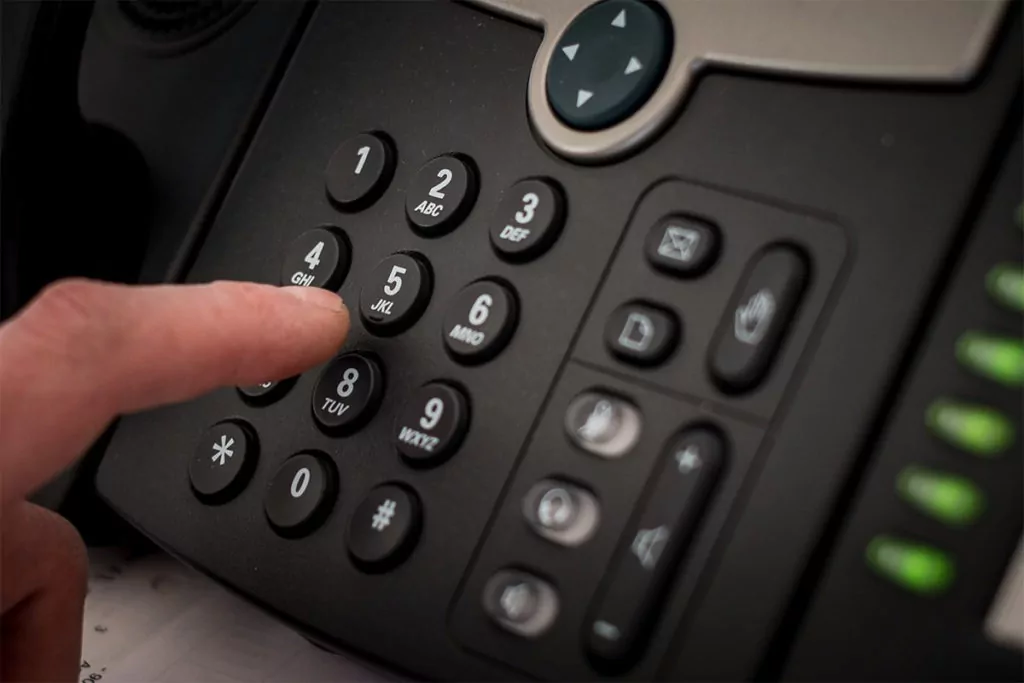In late 2019, Ofcom introduced a new 020 range of landline phone numbers for London, to keep the city connected. The demand for numbers has been on the rise, especially in London, with more and more people moving to the capital. By introducing the ‘020 4’ area code, 10 million landline numbers have been made available. So what does this mean for the future of telephony?
Ofcom’s new ‘020 4’ release
Ofcom is responsible for the administration of telephone numbers, allocating numbers to phone companies, businesses and personal customers. With the amount of homes, offices and people that are based in London, the demand for telephone numbers have been on the rise for a while.
020 became London’s area code in 2000 following the Big Number Change. 7 and 8 ranges (the number after 020, e.g. 020 7) became the norm and the start of landline phone numbers. In 2005, the 020 3 range was introduced, providing 10 million more numbers.
Fast forward to 2019. The 020 code had 30 million phone numbers allocated across the 3, 7 and 8 ranges. Ofcom found that they only had 1 million 020 3 numbers left to hand out and the regulator estimated that their supply would run out in 12 months. They introduced the 020 4 range, with applications flooding in in October 2019 and numbers being issued in December 2019. This boosted the total of London numbers to 40 million.
Despite landline’s gradual decline due to mobile phones and other communication services, people in the UK are still spending an extreme number of minutes making landline calls. Most home broadband connections still rely on a landline and therefore, a telephone number. However, as the communications industry grows and develops, the concept of telephone numbers and in particular, area codes is changing.
Need support?
Talk to us today
Contact us
The Future Of London Telephone Numbers
A study released in 2019 by Ofcom discussed the future of telephone numbers, regarding the change in attitude towards them and what process or service will be used or considered in the future.
Firstly, the UK’s telephone networks are constantly changing, as they upgrade their technology. Some phone companies are moving away from landlines and swapping their landline customers from the traditional PSTN network to newer VoIP technology. Although landlines are still a substantial and preferred way to communicate, landline rates have been decreasing, with mobile data increasing.
In the study, it was reported that the future of telephone numbers could boil down to the needs and opinions of the older versus the younger generations. Where the younger generation prefer to use messaging services to contact others, the older generation prefer communicating by landline. As VoIP technology doesn’t rely on area codes, the younger generation doesn’t feel strongly about ensuring that area codes stay in place. However, the older generation recognise area codes and find them helpful, so they can know who is calling and whether to trust the call or not.
Ultimately, the future use of telephone numbers rides on the improvement and preferred use of VoIP technology. VoIP phone technology doesn’t need area codes to tell it where to send a call. This removes the need for area codes, as VoIP technology uses the whole telephone number to determine where the call needs to be routed to. With moving to VoIP systems and the looming ISDN switch off, the way landline numbers are dialed could be changing and area codes could cease to exist.

Why do I want an 020 number for my business?
It might seem strange to have a phone number with a different area code than where you’re based. However, it’s extremely beneficial for small and startup businesses, to establish yourself and help your business develop.
By using an 020 number, this gives your business a virtual presence in London, even though you’re somewhere completely different. This makes your brand look stronger, bigger and more ‘international’, while boosting your business’ ranking and status.
Another reason to have an 020 number for your business, is to keep a fixed and consistent number for the whole company, for example, if you open more offices as you grow, you can still use the same number. Think of Uber and Deliveroo. They have employees all over the country, but they’re all under the same number. This builds up brand presence and awareness.
You can use an 020 number for a landline phone or a VoIP system – the choice is yours. We recommend VoIP technology over a traditional landline.
Why should I use VoIP technology over a traditional landline?
First, it’s helpful to understand the difference between a landline and VoIP technology. A landline is a telephone that uses copper wire or optical fibre to make and manage connections. Landlines are based on analog technology that sends signals through a series of exchanges that connects calls between two phones.
VoIP stands for Voice Over Internet Protocol. VoIP uses the internet to make and receive phone calls, converting calls into digital signals within the phone. It doesn’t rely on the traditional copper wire or physical exchanges that landlines do, but instead connects to broadband internet that plugs into a router or computer.
There are several reasons why VoIP technology is more beneficial (especially for business) than a traditional landline:
No need for area codes
VoIP technology doesn’t need an area code to make a call, so you can effectively pick any area code as your business phone number. Why would you do this? Well, you might request a number from a different area to give the impression of locality, despite being based elsewhere. This can make your business seem bigger than it is. This is also helpful if you’ve changed location and don’t want to go through the hassle of changing your number, so you can keep your preexisting one.
Cost
VoIP technology tends to be substantially cheaper and requires less equipment than a landline. Its setup and running cost is also much lower than a landline. A landline is connected by copper wires, and while it is seen as secure and stable, it’s outdated and can be improved to a more modern system, like VoIP.
Call quality
VoIP has clearer call quality than a landline. Whether you’re making a local call or an international call, the call quality stays the same. As your business expands and you need to add more lines to your phone system, VoIP does this easily and flexibly without compromising on audio.
Features
VoIP has many additional features that a landline doesn’t offer. This includes call features like holding and recording, as well as how to make a call, using mobiles, laptops and softphones. This offers mobility, which is great for businesses who have a lot of remote workers.
Make the move to the cloud
Take control of your technology and try our latest system, Wave, designed to help your business grow.


